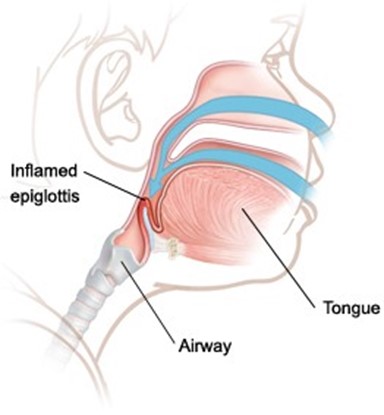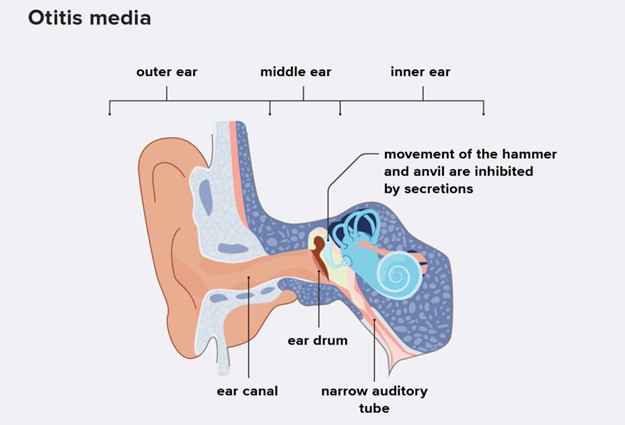The nurse is assessing a child with acute epiglottitis.
Examining the child’s throat by using a tongue depressor might precipitate which symptom or condition?
Inspiratory stridor
Complete obstruction
Sore throat
Respiratory tract infection
The Correct Answer is B
If a child has acute epiglottitis, examination of the throat may cause complete obstruction and should be performed only when immediate intubation can take place.

This is because the inflamed epiglottis can block the airway and cause respiratory distress or failure.
Choice A is wrong because inspiratory stridor is a sign of upper airway obstruction that is aggravated when a child with epiglottitis is supine.
It is not caused by examining the throat with a tongue depressor.
Choice C is wrong because sore throat and pain on swallowing are early signs of epiglottitis, not precipitated by examining the throat with a tongue depressor.
Choice D is wrong because respiratory tract infection is the cause of epiglottitis, not a symptom or condition that is precipitated by examining the throat with a tongue depressor.
Epiglottitis is caused by H. influenzae in the respiratory tract.
Nursing Test Bank
Naxlex Comprehensive Predictor Exams
Related Questions
Correct Answer is B
Explanation
If a child has acute epiglottitis, examination of the throat may cause complete obstruction and should be performed only when immediate intubation can take place.

This is because the inflamed epiglottis can block the airway and cause respiratory distress or failure.
Choice A is wrong because inspiratory stridor is a sign of upper airway obstruction that is aggravated when a child with epiglottitis is supine.
It is not caused by examining the throat with a tongue depressor.
Choice C is wrong because sore throat and pain on swallowing are early signs of epiglottitis, not precipitated by examining the throat with a tongue depressor.
Choice D is wrong because respiratory tract infection is the cause of epiglottitis, not a symptom or condition that is precipitated by examining the throat with a tongue depressor.
Epiglottitis is caused by H. influenzae in the respiratory tract.
Correct Answer is D
Explanation
Chronic otitis media with effusion (OME) is a condition where fluid accumulates in the middle ear without signs of infection.

This can cause hearing loss, speech delay, and balance problems. The child may complain of a feeling of fullness or pressure in the ear.
Choice A is wrong because a fever as high as 40° C (104° F) is a sign of acute otitis media, which is an infection of the middle ear with inflammation and pus formation.
Choice B is wrong because severe pain in the ear is also a sign of acute otitis media, not chronic otitis media with effusion.
Choice C is wrong because nausea and vomiting are not typical symptoms of chronic otitis media with effusion. They may be associated with other conditions such as gastroenteritis or vestibular disorders.
Whether you are a student looking to ace your exams or a practicing nurse seeking to enhance your expertise , our nursing education contents will empower you with the confidence and competence to make a difference in the lives of patients and become a respected leader in the healthcare field.
Visit Naxlex, invest in your future and unlock endless possibilities with our unparalleled nursing education contents today
Report Wrong Answer on the Current Question
Do you disagree with the answer? If yes, what is your expected answer? Explain.
Kindly be descriptive with the issue you are facing.
